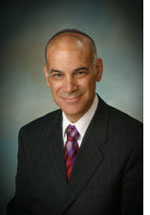By Rabbi Leonard Rosenthal

SAN DIEGO–During Pesach Jews are obsessed with ridding their homes of chametz. (fermented wheat, rye, barley, oats, and spelt.)
They remove bread, cookies, and beer (sigh), clean and scrub their counters and sinks, vacuum their carpets, and blowtorch their ovens (or use the self clean mode!). The process of getting rid of chametz is like spring cleaning on steroids!
Why should we rid our homes of chametz during Passover? One would think that the rabbis would suffice with teaching us: it is because the Torah says so. But our sages never seemed content with the obvious answer. They always added additional layers of interpretations. In this case they taught that chametz should be anathema to us during Pesach because it represents our yetzer ha-ra, evil inclination: “Rabbi Alexandri would end his daily prayers with the following prayer: ‘Master of the Universe, You know full well that it is our desire to act according to Your will; but what prevents us from doing so? – the yeast in the dough…'” (Berakhot 17a)
Rabbi Alexandri compares our evil inclination to chametz (the “yeast” in the dough). Just as chametz is “puffed up and can spoil food” so does one’s evil inclination, one’s inclination toward selfishness and egocentrism causes us to be arrogant, overbearing, self-absorbed, and impervious to the pain of others.
Our rabbis taught that just as we remove physical chametz from our homes before Pesach, so should we rid spiritual chametz from our hearts, not only during the holiday but every day. We should remove those things from our lives which impede our ability to love, care, and be a blessing to others
The season that most of us think about emptying our souls of evil and filling them with good is during the High Holy Days: Rosh Hashana, Yom Kippur, and the ten days in between. Ridding our homes and hearts of chametz during Passover reminds us that doing teshuva, of turning back to God by eschewing evil and doing good, should not be reserved for one time of year alone. It is a process we must embrace every day of our lives.
(Bonus Question: Why do we throw bread crumbs into the water at Tashlich and not something else, such as fruits and vegetables?)
*
Rabbi Rosenthal is spiritual leader of Tifereth Israel Synagogue in San Diego. He may be contacted at leonard.rosenthal@sdjewishworld.com